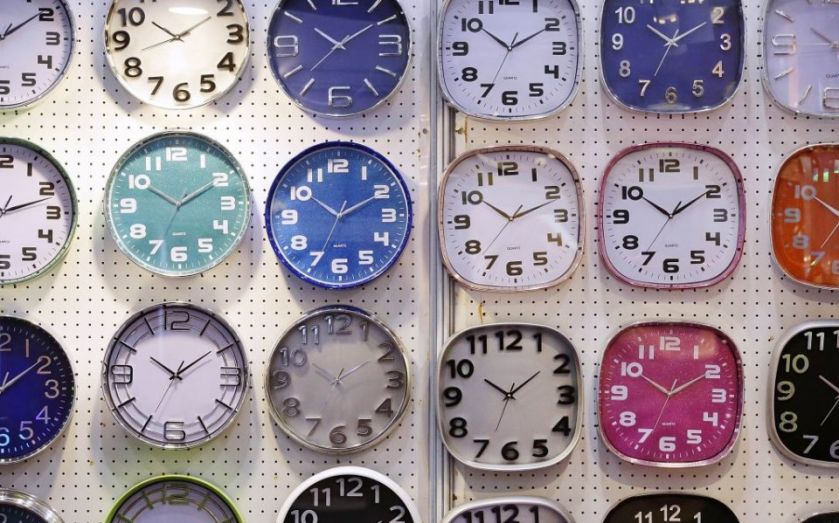Here’s why today’s “leap second” is creating anxiety among traders and businesses leaders around the world

This evening at 8pm New York time (that's 1am over here) clocks around the world will have a “leap second” added to the end of the day.
It's a necessity resulting from the introduction of atomic clocks in the 1970s – entirely man-made time keeping can never be exactly in tune with the Earth's rotation, so every now and again a slight adjustment must be made.
It isn't normally an issue – it tends to take place at the weekend, when trade deals aren't going ahead.
But this year, for the first time, the extra second will be added to a day in the middle of the week, which could cause chaos for traders across the world.
Read more: Deutsche Bank Libor fine – Seven crazy things traders said about Libor that cost the bank billions
With transactions now so fast they can be completed in a fraction of a second, trades amounting to £2.9m can take place in a single second.
So, here's what could go wrong, and how everyone's trying to prevent it from having too much of an impact.
One in 10 computer systems will have problems
When an extra second is added, all of the world’s computer systems must adjust to align themselves with Universal Time (UTC).
In 2012, despite the change going ahead at a weekend, it caused the systems of a number of major businesses to freeze, including those of Qantas and Linkedin. The problem was traced to an issue within Red Hat/Linux servers, which are often used by the finance industry.
Once again businesses are nervous about their servers going down, even after taking all possible precautions to avoid it.
Geoff Chester, public affairs officer for the US Naval Observatory in Washington, told Bloomberg an estimated 10 per cent of large-scale computer networks would end up encountering problems.
"With the leap second, you count 61 seconds in a minute, and that’s where the problems lie,” he said.
Trades will be disrupted – so everyone's changing their trading times
When the second is added, it will be 8pm in New York. To avoid any trades coinciding with the leap, the New York Stock Exchange and Nasdaq are closing late trading early.
Markets in Japan, South Korea and Australia will start trading one second after the leap. About $3.7bn will change hands at the bell on the countries’ stock markets, according to calculations by Bloomberg.
Sydney and Tokyo are therefore recalibrating their clocks. Japan will make the change hours before, while Australia and Korea will make up the time afterwards. Singapore's exchange SGX will delay the change by 24 hours.
But while all countries are doing what they can to prevent their stock markets being burnt by this necessary addition to time, it's not certain no problems will arise.
“As systems continue to be more and more connected, it’s becoming harder and harder to predict just what the impact could be and how big,” said Hiroki Kawai, the head of trading systems at the Japan Exchange Group.
The end of the leap second?
For those fretting about the impacts of the leap second, they'll be pleased to hear it might not continue for much longer. When they meet in November, members of the International Telecommunication Union will discuss whether to scrap the change once and for all.